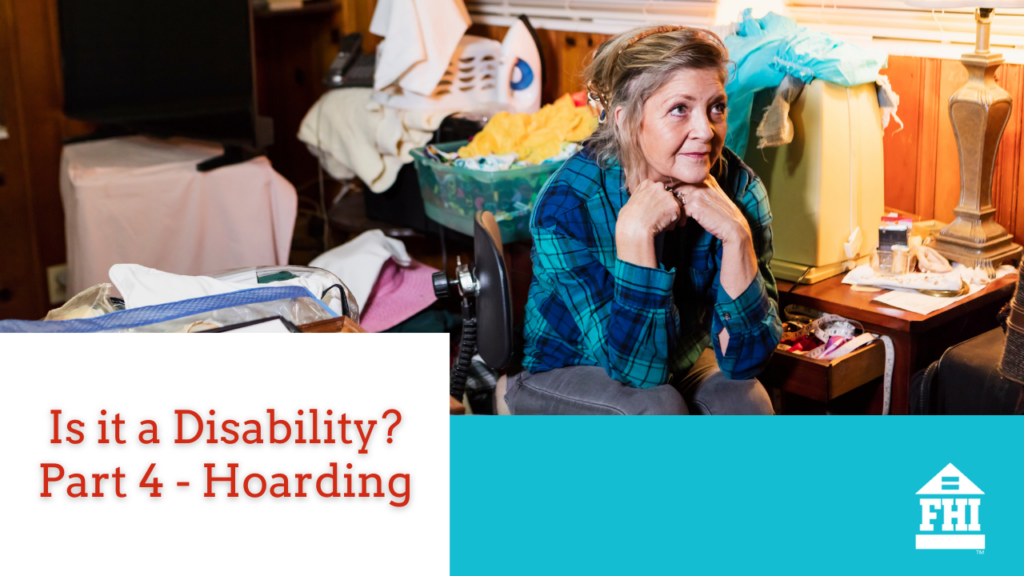Hoarding: a word that brings to mind images of cluttered spaces and challenging living conditions. It is also a complex issue that intertwines mental health and housing standards, posing unique challenges for property managers and housing providers. But is hoarding a disability? This blog delves into the intricacies of managing hoarding situations while adhering to fair housing regulations.
Estimated reading time: 4 minutes

Table of contents
Understanding Hoarding as a Disability
Hoarding disorder is characterized by an individual’s persistent difficulty discarding or parting with possessions, regardless of their actual value. This behavior can lead to cluttered living spaces, hindering the use of those spaces as intended. Classified as a mental disability, hoarding can stem from various underlying causes, including traumatic life events or other mental health conditions. Its impact on multifamily rental housing can be significant, often resulting in serious lease violations due to issues like odors and sanitary concerns that may affect other residents.
The primary responsibility of property management is to maintain a safe and habitable living environment for all residents. This includes addressing lease violations, which hoarding can certainly constitute. However, when it comes to hoarding disorder, the approach must be nuanced and informed by a deep understanding of fair housing laws.
Identifying the Need for Accommodation
Addressing hoarding situations requires a balance between legal obligations and compassionate response. One of the critical questions in managing hoarding situations is whether property management is required to offer accommodation when a resident has not explicitly asked for one. The answer lies in the visibility of the disorder. If it is apparent that a resident’s hoarding is related to a mental disability and is contributing to lease violations, property management has a duty to carefully initiate a conversation about reasonable accommodations, even if the resident has not made a formal request. This proactive approach is not just about lease enforcement but also aligns with fair housing laws mandating reasonable accommodations for disabilities.
Crafting Reasonable Accommodations
Addressing hoarding behavior does not mean allowing lease violations to persist indefinitely. Instead, property management should work collaboratively with the resident to cure the violation. The objective is twofold: to restore the living space to a safe, functional state and to uphold the community’s standards for all residents. This might involve providing additional time for cleanup, establishing an action plan with scheduled check-ins, and encouraging the resident to seek assistance from family members or social services. This method not only addresses the immediate safety and sanitary concerns but also respects the resident’s dignity, offering a path forward rather than punitive measures. The goal is to improve the situation to a manageable level.
Documenting the Process
Documentation plays a pivotal role in managing hoarding cases. From the initial identification of the issue to the steps taken to accommodate and resolve the situation, maintaining detailed records is essential. This includes recording observations of hoarding behavior, communications with the resident, proposed accommodations, action plans, and follow-up efforts. Documentation not only serves as a record of the efforts made to address the hoarding behavior but also as protection against potential claims of fair housing violations should the situation necessitate lease termination.
Strategic Resolution
Hoarding is a sensitive issue that requires property managers to balance the rights and needs of the individual with the overall well-being of the community. This balance demands a nuanced approach from property managers, blending empathy with a steadfast adherence to fair housing guidelines. By approaching hoarding with understanding and a commitment to fair housing principles, property management can navigate these challenging situations effectively. Ultimately, the successful handling of hoarding cases showcases a property management’s dedication to upholding both the dignity of affected residents and the quality of life within the community.
You May Also Like:
